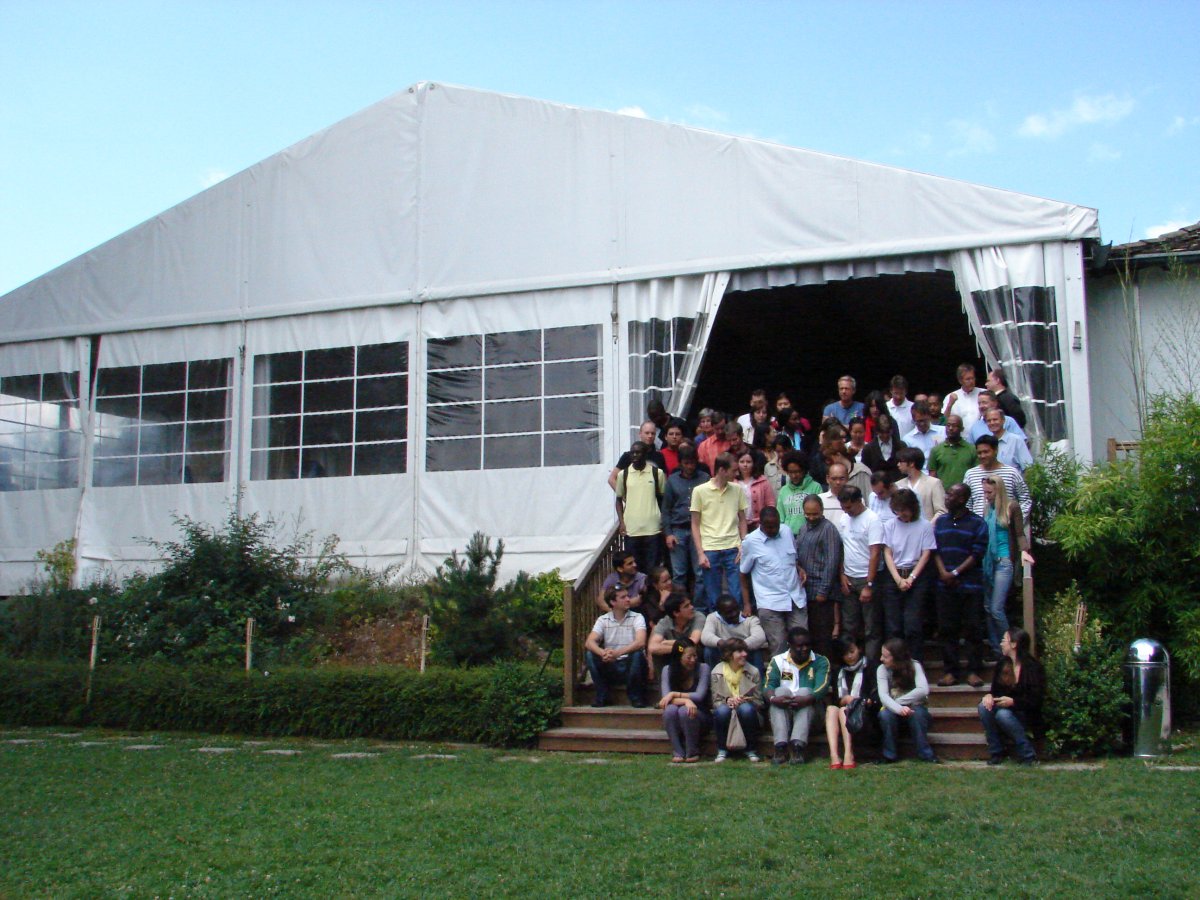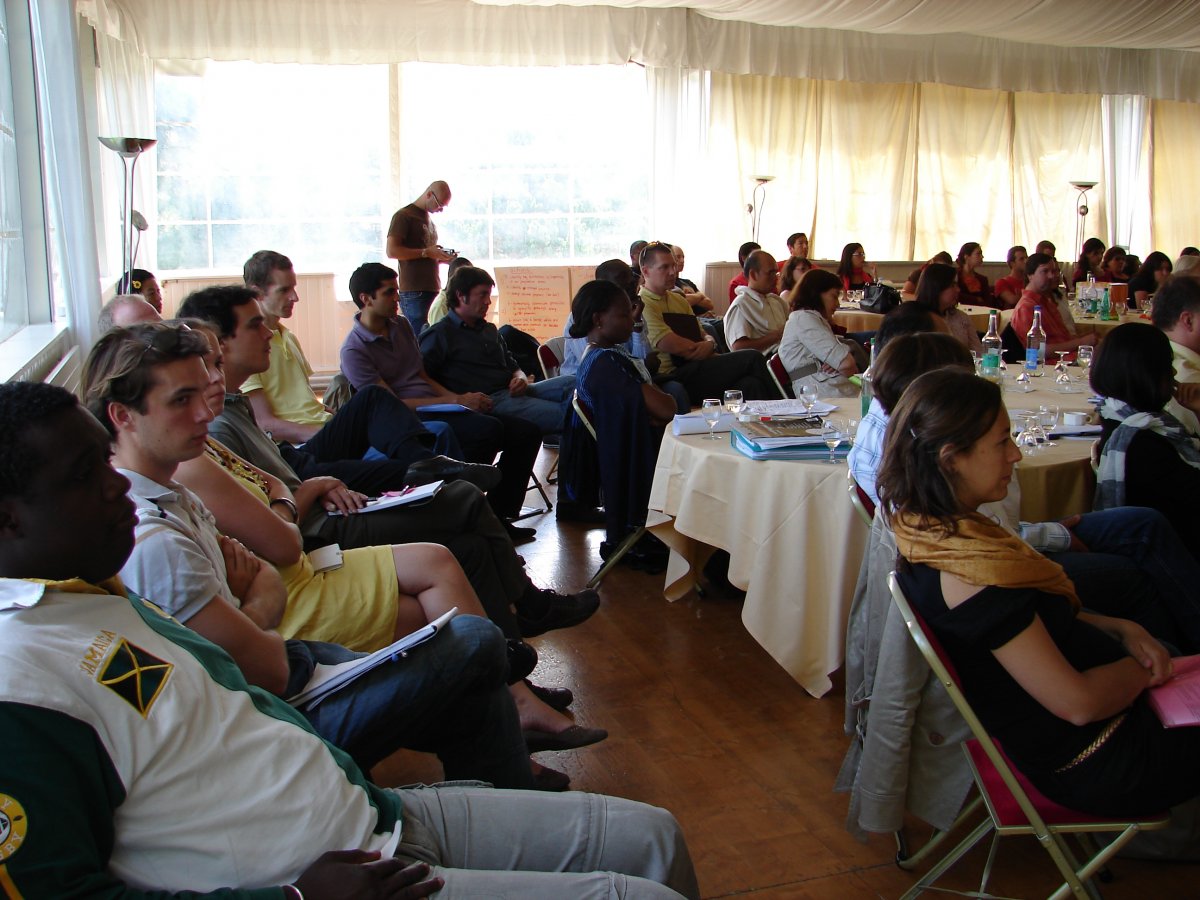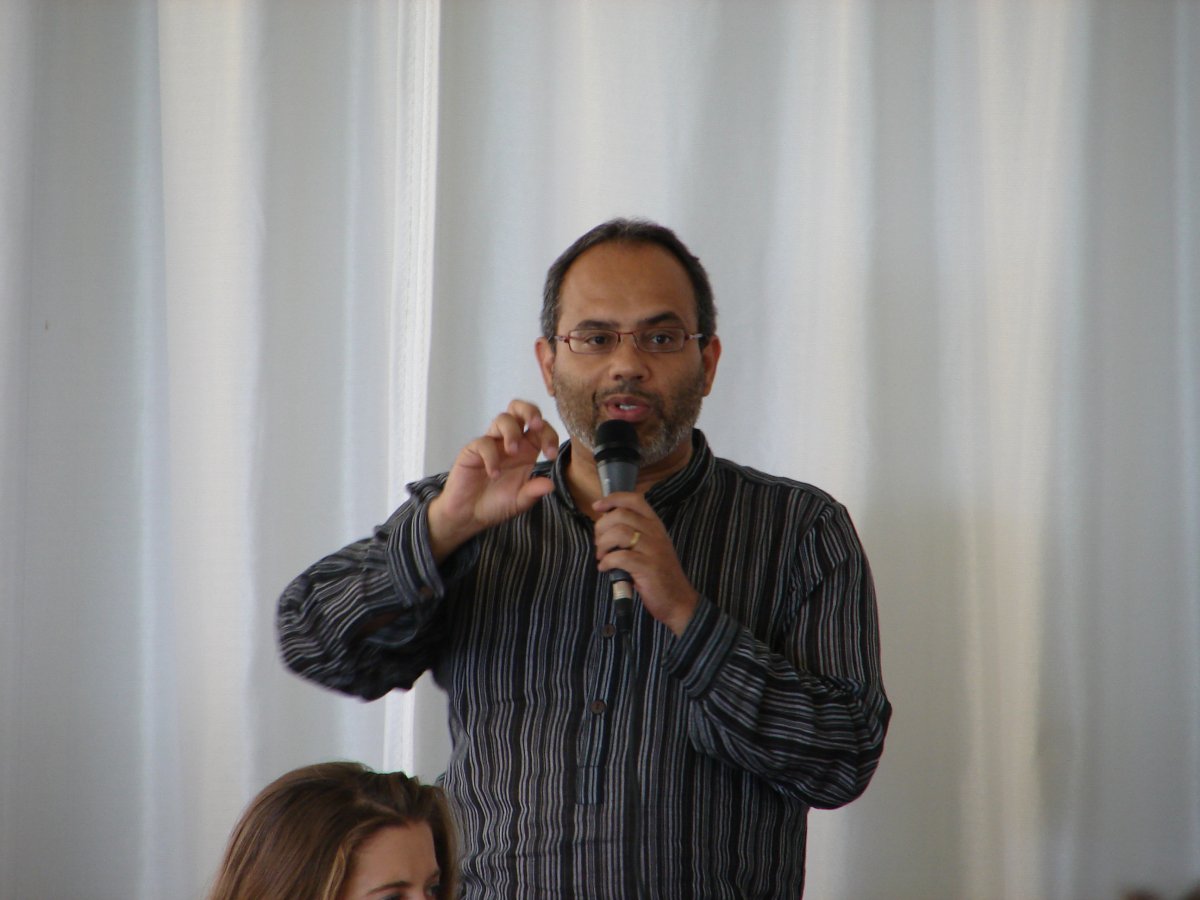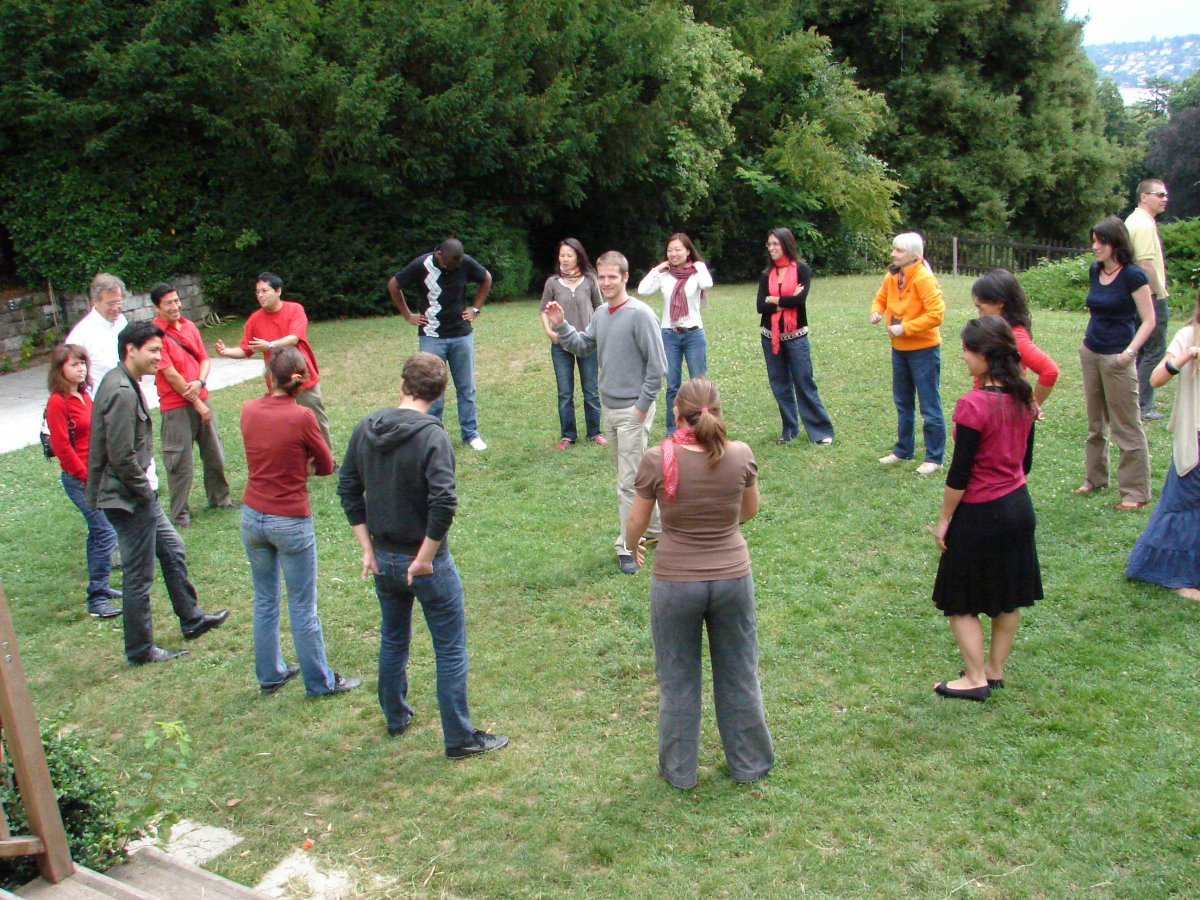
Over 100 of the Institute’s staff gathered in Geneva, Switzerland on 7-8 July for the biannual retreat to take stock of the achievements of the past two years and devise an outward-looking strategy for the years to come. The event, which was introduced by the Chairman of the Board of Trustees, H.E. Ambassador Tõnis Nirk, was the result of a two-month preparatory process taking the form of online and face-to-face group discussions or “Knowledge Cafés” as building blocks for the retreat. Four themes were identified as strategic priorities; related actions and indicators were further refined for each theme, leading to a draft strategic plan for the next two to three years.
The four themes discussed in the participatory process, and further developed at the retreat were: Innovation and anticipation to changes in society, Enhancing the quality and diversity of UNITAR’s services, Further strengthening UNITAR’s autonomy and Getting results-oriented. Staff members were separated in coloured working groups to “brainstorm, brainstorm and brainstorm” leading to refined and at times redefined strategic priorities, actions and indicators for achievement. As a result, a draft strategic plan will be submitted to the Institute’s Board of Trustees at its next session in November.

Representatives of the Institute’s New York and Hiroshima out posted offices and associates and senior advisors from external circles of the Institute also joined the staff retreat to share their knowledge and experiences. Staff showcased some of the achievements that make UNITAR unique within the UN system, such as the annual International Law Fellowship in The Hague, featuring high calibre judges, or the several-year old chemicals management project with the Democratic People’s Republic of Korea. The successful cost-recovery mechanism put in place by the programme on public finance and trade for its e-learning courses, generating income stability, was also shared as a potential example and path forward for the Institute.

While recognizing the need for a forward-looking vision and prepare UNITAR’s future, the Executive Director, Carlos Lopes, highlighted the Institute’s unique leading and cutting edge achievements in specific domains and called for a “new model of business” diversifying the Institute’s products and services and further expanding innovation to all units and programmes.
The retreat concluded after two days of sharing, brainstorming and team building, with the certainty that a better, more ambitious and forward-looking UNITAR will emerge. The inclusive nature of the format encouraged interactions between all categories of staff and fostered greater harmony and information sharing.

